Sending bank statements might seem like a simple task, but it’s important to ensure your financial info stays safe. Scammers are always on the lookout for sensitive information, and your bank statements are a goldmine for them. Whether you’re emailing them or storing them in the cloud, taking the right precautions can protect you from potential risks. Let’s dive into some key takeaways for keeping your bank statements secure.
Key Takeaways
- Avoid sending bank statements over email without encryption; it’s like handing your keys to a stranger.
- Always use two-factor authentication for accessing your financial information online.
- Choose secure cloud storage options that offer strong encryption and regular security updates.
The Perils of Sending Bank Statements: What Could Go Wrong?
Why Your Bank Statements Are a Goldmine for Scammers
Imagine your bank statement as a treasure map. It’s got all the juicy details a scammer needs to unlock your financial kingdom. Account numbers, transaction history, even your spending habits—it’s all there, waiting to be plundered. Scammers love this stuff because it’s like handing them the keys to your vault. They can use this info to impersonate you, make unauthorized transactions, or even open new accounts in your name. Yikes!
The Risks of Emailing Financial Documents
So, you think emailing your bank statement is safe? Think again! Email is like sending a postcard through the mail—anyone can peek at it along the way. Cybercriminals are lurking everywhere, and they’re always on the lookout for unsecured emails to exploit. When you send sensitive documents via email, you risk exposing your personal information to hackers who can intercept and misuse it. Plus, if your email account gets hacked, say goodbye to your privacy.
How Cybercriminals Exploit Your Financial Data
Cybercriminals are crafty, and they’ve got a bag full of tricks to get their hands on your financial data. From phishing emails that look like they’re from your bank to malware that sneaks into your system, they’ve got it all covered. Once they snag your info, they can drain your accounts, max out your credit cards, and even commit tax fraud in your name. Just like that, your financial world is turned upside down. And if you think it can’t happen to you, remember—everyone is a target.
Smart Ways to Safeguard Your Bank Statements

The Magic of Encryption: Keeping Your Data Safe
Alright, let’s talk encryption. Think of it as your bank statement’s invisibility cloak. When your data is encrypted, it’s like turning your information into a secret code that only you (and maybe your bank) can decipher. So, when sending or storing your bank statements, make sure they’re wrapped in this digital armor. It’s not just for tech wizards; even apps like StatementCloud use encryption to keep your financial docs under lock and key.
Why Two-Factor Authentication is Your Best Friend
Imagine your house has two locks, instead of one. Two-factor authentication (2FA) is kinda like that. It adds an extra layer of security by requiring not just a password, but also a second verification step. This might be a text to your phone or an email confirmation. So, even if someone guesses your password, they still can’t waltz into your account. Double the locks, double the security!
Choosing the Right Cloud Storage for Your Statements
Storing your bank statements in the cloud? Smart move, but choose your cloud provider wisely. Look for services that offer strong encryption and two-factor authentication. Whether you’re using Google Drive, Dropbox, or OneDrive, ensure they’re set up to protect your data like a fortress. Plus, with cloud storage, you can access your statements anytime, anywhere—no more frantic searches through piles of paper!
Common Mistakes to Avoid When Handling Bank Statements
The Dangers of Public Wi-Fi: A Cautionary Tale
Ah, the allure of free Wi-Fi at your favorite coffee shop. It’s tempting, right? But before you log into your bank account while sipping that latte, think again. Public Wi-Fi networks are a hacker’s playground. They’re like the wild west of the internet, where your private info can be snatched up faster than you can say "free refill." Avoid accessing sensitive information unless you’re on a secured network or using a VPN. Your bank statements are not worth the risk of being exposed to prying eyes.
Why You Should Never Use Weak Passwords
Okay, let’s be real. We’ve all been guilty of using "password123" at some point. But when it comes to your financial data, a weak password is like leaving your front door wide open. Make sure your passwords are strong, unique, and updated regularly. Think of them as the lock to your financial house—make them sturdy enough to keep the bad guys out.
The Pitfalls of Ignoring Software Updates
You know those pesky update notifications you keep ignoring? Turns out, they’re pretty important. Software updates often contain security patches that protect your data from new threats. Ignoring them is like leaving your window open during a storm. So, next time you see that update alert, don’t snooze it. Embrace it. Your bank statements—and your peace of mind—will thank you.
"Handling your bank statements with care is not just a good habit; it’s a necessity in today’s digital age."
By avoiding these common mistakes, you can keep your financial information safe and sound. Remember, a little caution goes a long way in protecting your financial health.
Mastering the Art of Secure Document Sharing

How to Share Bank Statements Without Losing Sleep
Sharing your bank statements shouldn’t feel like handing over your life’s secrets to a stranger. Keep it cool and secure by using trusted platforms like StatementCloud. This nifty tool not only organizes your financial documents but also ensures they’re safely tucked away in the cloud. With secure cloud sharing, you can focus on what matters without fretting about security breaches.
The Do's and Don'ts of Digital Document Management
- Do use encryption. It’s like wrapping your documents in a digital armor.
- Don’t send sensitive info over public Wi-Fi. It’s like shouting your PIN at a crowded bus stop.
- Do enable two-factor authentication. A password alone is about as secure as a screen door on a submarine.
Why Secure Links Beat Email Attachments Every Time
Email attachments are so 2010. Secure links are the new black. They’re not only safer, but they also let you control who sees your stuff. Plus, you can revoke access if things get sketchy. So, next time you need to share a bank statement, ditch the attachment and go for a secure link. Your future self will thank you.
Sharing your financial documents doesn’t have to be a nerve-wracking experience. With the right tools and a pinch of caution, you can keep your information safe and sound.
Wrapping It Up: Keep Your Financial Info Safe and Sound
So, there you have it, folks! Sending bank statements doesn’t have to be a nail-biting experience. With a few savvy moves, like using secure cloud services and keeping your passwords as secret as your grandma’s cookie recipe, you can protect your financial info from prying eyes. Remember, it’s all about being smart and a little cautious. And hey, if you ever feel like you’re in over your head, don’t hesitate to reach out to a tech-savvy friend or a professional. After all, peace of mind is priceless, right? Now go on, conquer the world of digital finance like the savvy pro you are!
Frequently Asked Questions
Is it safe to email my bank statements?
Emailing bank statements can be risky because hackers might access your email. It’s better to use secure methods like encrypted services or trusted cloud storage.
How can I protect my bank statements online?
Use strong passwords, two-factor authentication, and secure cloud storage to keep your bank statements safe. Avoid sharing them over public Wi-Fi.
What should I do if I lose my bank statements?
If you lose your bank statements, contact your bank to get copies. Consider using a cloud service to store them securely for easy access in the future.







